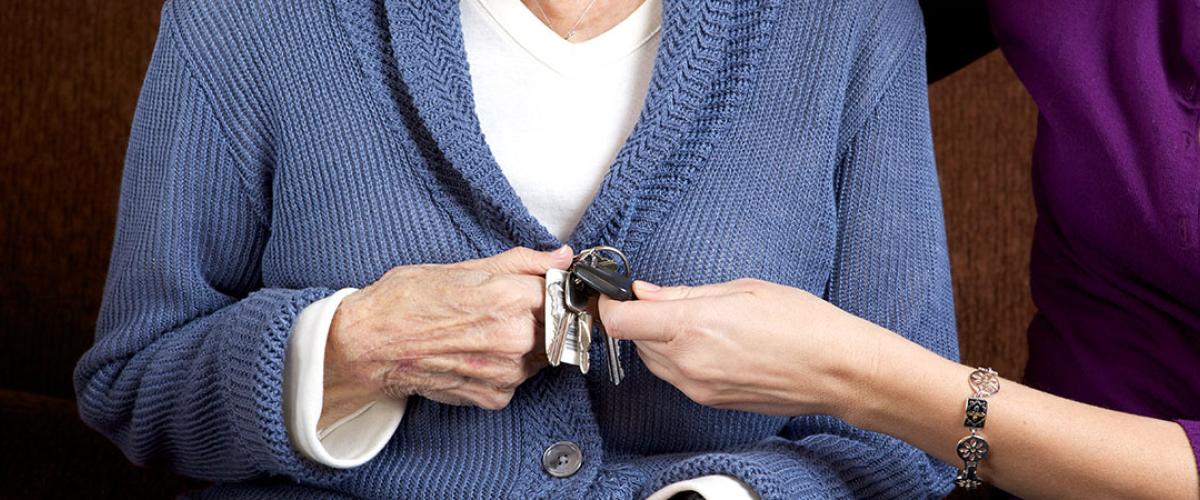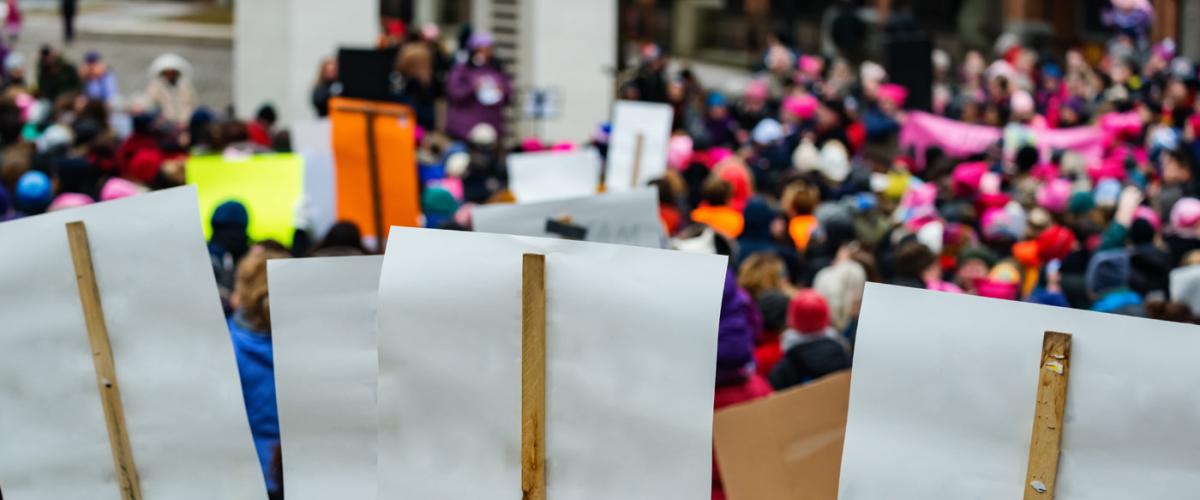The fall 2022 issue of PreLaw Magazine ranked CWRU’s Criminal Law program among the best in the country with an “A” ranking. “This has been an exciting year for our criminal law program,” said Co-Dean Michael Scharf, an expert in international criminal law. “We are grateful for the recognition of the strength of our extraordinary program.” Below are some of the year’s highlights that helped earn this top ranking.
The Criminal Law Appeals Clinic Represented Twenty Clients
At CWRU, every student undertakes an intensive capstone in their third year, which can be in one of our ten clinics, including our Criminal Law Clinic or in our Appellate Litigation Clinic. Launched in the spring of 2020, the Appellate Litigation Clinic has represented over 20 clients, most of whom seek to overturn criminal convictions. During the 2021-22 academic year, our clinic won every case we argued in the Ohio Court of Appeals. We also successfully convinced the Supreme Court of Ohio to hear one of the few cases we lost, and we expect a decision shortly on a critical issue involving a criminal defendant’s right to withdraw a guilty plea when the State withholds evidence from him. This year, our ten students will brief and argue seven criminal appeals, including two in the United States Court of Appeals for the Sixth Circuit.
A New Student Group Submitted Advocacy Memos on Limiting Qualified Immunity for Police and Mandating Police-Worn Body Cameras at the Municipal Level
A group of first-year law students at CWRU recently launched the Student Legislative Initiative of Cleveland (SLIC) to advocate for legislative measures to address criminal-law and other pressing public safety issues in our communities. For SLIC's very first two projects, members of the group collaborated to research, write, and pitch legislation limiting qualified immunity for police at the state level and mandating police-worn body cameras at the municipal level. Current initiatives include research and advocacy regarding the legislative criminalization and decriminalization of homelessness as well as looking at Cleveland's mental health crisis response system and diversionary program.
Social Justice Law Center Undertook a Study on Felony Sentencing Data
Our Social Justice Law Center (SJLC) began a pilot study of Cuyahoga County felony sentencing data. The study is designed to effect positive change by promoting systemic racial equity within the judicial systems of Cuyahoga County, and ultimately Ohio. Through this effort, SJLC seeks to illuminate inequities for Black and brown individuals who have undergone criminal sentencing in the county over the past decade, and to do so for legal, academic, and public audiences. This initiative received $50,000 from the Ohio State Bar Foundation to hire a team of researchers and law students to conduct the pilot study.
Death Penalty Lab Submitted Briefs and Petitions in Several Cases
The CWRU Death Penalty Lab worked on significant death penalty issues and cases over the past year. This included a Brief in Opposition and merits briefing on a case before the Supreme Court of the United States as well as several post-conviction petitions under Ohio's new law excluding those with significant mental illness from the death penalty. Students investigated the merits of claims and drafted motions and substantive petitions. The Death Penalty Lab continues to provide support and resources to attorneys representing those facing capital indictment through to execution litigation.
New Course on Restorative and Transformative Justice Launched
The newest addition to our extensive Criminal Law offerings is the Restorative & Transformative Justice course, designed to introduce students to the concept of restorative justice as a tool for transformational change by examining historical and current literature on the indigenous roots of restorative practices and current applications in community-based settings and various systems, with a focus on youth, including schools, courts and law enforcement. In this hands-on course, students work closely with professors and community partners to understand the theory and practice of restorative and transformative justice with a focus on youth-related conflicts and challenges.
From Podcast to Practice, CWRU Integrated Popular Podcast “Serial” on Criminal Justice Into 1L Student Education
Instead of assigning students to read a book for their common reading, CWRU 1Ls were assigned to listen to the “Serial” podcast's third season, focusing on Cleveland’s criminal justice system. Afterward, the students participated in a discussion with the host of the podcast, Sarah Koenig, as well as faculty and outside lawyers from both the defense and prosecution sides; and had the opportunity to work in the Law School’s Second Chance Reentry Clinic for individuals facing legal barriers as a result of their criminal records.
Yemen Accountability Project Enters its Fifth Year of Preparing War Crimes Cases for Prosecution
While most of the world is focused on war crimes committed during the Russian invasion of Ukraine, the conflict in Yemen continues to be the site of some of the worst atrocities and suffering on the planet. Case Western Reserve University School of Law is playing a unique role in documenting those crimes for eventual prosecution. CWRU School of Law’s Yemen Accountability Project (YAP)—a student-led initiative that documents and analyzes war crimes and crimes against humanity committed during the Yemen Civil War—is entering its fifth year this fall.
Since its start in 2018, the project has been supported by a generous annual grant from alumnus Tim Geisse (‘84). Adjunct professor James Johnson, Director of the Law School’s Henry King War Crimes Research Office, supervises the 50 students (mostly 1Ls) involved in the project. Johnson also serves as Chief Prosecutor of the Residual Special Court for Sierra Leone, appointed by the UN Secretary General. During the 2021-2022 academic year, YAP's student researchers documented potential crimes occurring through the year 2020, updated dossiers on the conflict's most responsible parties, and drafted a white paper on “Attacks on Yemen's Cultural Property,” including religious sites, educational institutions, and a number of UNESCO World Heritage Sites. This is YAP’s third white paper. The white papers have been widely disseminated to governments, NGOs and international organizations.
Dean Michael Scharf Presented an Amicus Argument at the International Criminal Court Appeals Chamber in The Hague
Case Western Reserve University School of Law Dean Michael Scharf presented an amicus argument before the Appeals Chamber of the International Criminal Court (ICC) in The Hague on February 14, 2022. Scharf was asked by the Court to address “who has the burden of proof for the insanity defense—the prosecutor or defendant—in cases before the ICC?”
“Being invited to submit an amicus brief to the Appeals Chamber of the ICC is a rare privilege,” Scharf told Crain’s Cleveland Business. It’s even rarer to be invited to present an amicus argument in person, and Scharf is one of just a handful of Americans ever to have had the opportunity to argue before the Appeals Chamber of the ICC. Scharf’s amicus brief in the Ongwen case is available on the ICC’s website. The Appeals Chamber is likely to render its judgment in fall 2022.
Criminal Law Mock Trial Teams Ranked Among the Best in the Nation
A recent study (available at: https://nica.team/ ) ranked CWRU School of Law the 5th best law school in the country in Moot Court and Mock trial success. Among the successes in the past year were:
- BLSA Constance Baker Motley Mock Trial Competition (Best Speaker in Regionals and National Semifinalist)
- National Trial Competition in Fort Worth (Regional winner and National Semifinalist)
- American Association for Justice Mo https://nica.team/ck Trial Competition (National Quarterfinalist)
- Costello National Criminal Law Trial Advocacy Competition (2nd Place)
- Case Classic Mock Trial Competition (1st place)
CWRU School of Law Hosted Major Speakers and Conferences on Criminal Law
On Aug. 31, 2022, Fatou Bensouda, who served as Chief Prosecutor of the International Criminal Court (ICC) from June 2012 to June 2021, gave the Klatsky endowed lecture, titled “Reflections of an International Chief Prosecutor.”
Twenty years ago, the international community answered the call for justice by the people of Sierra Leone and West Africa by creating the world’s first international hybrid war crimes tribunal. Armed with a workable mandate, the Special Court for Sierra Leone achieved justice for the murder, rape, maiming and mutilation of over one million people. On July 1, 2022, CWRU School of Law hosted a Zoom roundtable discussion with those individuals who created, sustained, and accomplished that justice for the people of Sierra Leone, including Adjunct Professor James Johnson, the current Chief Prosecutor of the Residual Special Court for Sierra Leone.
On Sept. 25, 2021, the Law School hosted a panel on “The 75th Anniversary of the Nuremberg Judgment: The Academy and War Crimes Prosecutions.” Articles by the panelists, which included Beth van Schaack, US Ambassador at Large for Global Criminal Justice, were published in volume 54 of the Case Western Reserve Journal of International Law (2022).





